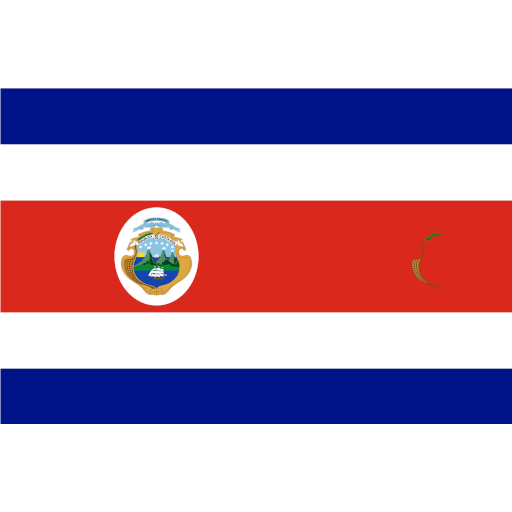- Disabilities from the Costa Rican Social Security Fund (as its acronym in Spanish – CCSS):
During sick leave, the employer must pay 50% of the salary for the first three days of an employee's sick leave, while the Costa Rican Social Security Fund (CCSS) pays the other 50%. The CCSS pays 60% of the salary from the fourth day of sick leave and up to 52 weeks with no obligation on the employer's part to pay the wages for the remainder of the sick leave period.
By Article 79 of the Labor Code, the employer is required to provide:
- After continuous work of no less than three months, nor more than six, it will pay half salary for one month
- After more than six months of continuous work, but less than nine, he will pay half salary for two months.
- After more than nine months of continuous work, he will pay half salary for three months.
Link: https://www.mtss.go.cr/elministerio/marco-legal/documentos/Codigo_Trabajo_RPL.pdf
- ¿When does the deadline to collect disability benefits expire in Costa Rica?
According to Article 61 of the Constitutive Law of the Costa Rican Social Security Fund (CCSS), the right to collect disability benefits expires six (6) months after the disability is granted.
Steps for an employee to collect disability benefits:
The CCSS disability payment system in Costa Rica is designed to protect employees during periods of disability and ensure that they receive fair compensation.
- The employee attends the appointment and is granted disability benefits.
- The employee receives a ticket with the registration number noted so the employer can verify it on the website www.ccss.sa.cr This registration number can be sent by message or by the means indicated by the company, so the employee will not have to travel to the workplace. The number that employers must verify appears in the upper right corner, allowing them to know the date of the issuance and conclusion of the disability benefits.
- Employees must register their client account (in Colons) and personal data to receive payment. The employee no longer must withdraw the payment from the Cash Office; instead, an electronic deposit is made.
- The payment process can be verified at www.ccss.sa.cr or through the Virtual Office aissfa.ccss.sa.cr/affiliation/
- To carry out this procedure, the employee must be affiliated with the system. You can use the same link if you have not registered with the CCSS Virtual Office. If you are an independent worker, the only thing required is your data and the employer number if you are a salaried employee or the pay stub number for the last six months. If you are insured as a beneficiary, you must appear at a CCSS office. The CCSS deposits in approximately ten business days. Disability payments are recognized from the fourth day onwards.
Link: https://www.ccss.sa.cr/
- Working Hours in Costa Rica
Ordinary Hours
- Daytime: 5:00 am - 7:00 pm. The maximum is 8 hours per day and 48 hours per week. If it is not dangerous, it may be extended to 10 hours per day without exceeding 48 hours per week.
- Nighttime: 7:00 pm - 5:00 am. Maximum of 6 hours per day and 36 hours per week.
- Mixed: It starts before 7:00 pm and ends before 10:30 pm or starts after 1:30 am and ends after 5:00 am. It is a maximum of 7 hours per day and 42 hours per week. If it is not dangerous, it may be extended to 8 hours per day without exceeding 48 hours per week.
Example:

Hours worked beyond the typical working day
Payment: 50% additional (regular hour x 1.5).
Example:

- Continuous and Split Days:
Continuous: 30-minute to 1-hour break at the workplace. The break counts as part of the day.
Example:

Fractional: Break of 1 hour or more outside the workplace. The break does not count as part of the workday.
Example:

Salary Considerations:
- Salary differences are not allowed based on the type of workday.
- Employees in the same category and with the same type of work must receive the same salary, regardless of the workday.
Additional Notes:
- The minimum daily rest period is 30 minutes.
- Coffee breaks are not mandatory or counted as part of the daily rest period for split workdays.
These guidelines ensure the correct application of workdays by current regulations in Costa Rica.
Link: https://www.mtss.go.cr/elministerio/marco-legal/documentos/Codigo_Trabajo_RPL.pdf
Overtime payment is an essential issue in Costa Rican labor law, affecting employees and employers.
Definition of Overtime
An overtime hour is when a worker dedicates to the employee their duties beyond the established workday. For example, if the workday is 8 hours and the worker stays an additional hour, this hour is considered overtime.
Types of Overtime
In Costa Rica, overtime hours are classified according to the schedule in which they are worked.
Daytime overtime: These are hours worked after the regular daytime workday and until 10:00 p.m.
Example:

Night overtime: These are hours worked after 10:00 p.m. and until 6:00 a.m.
Example:

Mixed overtime: These are hours worked during the regular daytime shift and extend into the night shift.
Example:

The legal framework that regulates the payment of overtime in Costa Rica is established in the Labor Code. This regulation specifies the conditions and rates under which overtime must be paid, guaranteeing the protection of workers' rights.
Link: https://www.mtss.go.cr/elministerio/marco-legal/documentos/Codigo_Trabajo_RPL.pdf
In accordance with the above, the regulations in force in Costa Rica establish that overtime must be reimbursed at a higher rate than regular hours in recognition of the employee's additional effort and compliance with occupational health and safety regulations.
The content of this newsletter is for informational purposes only and should not be used under any circumstances as advice on the subject matter described herein. If you require assistance with any of the topics covered, our team of professionals is available to help. contacto@jadelrio.com


























